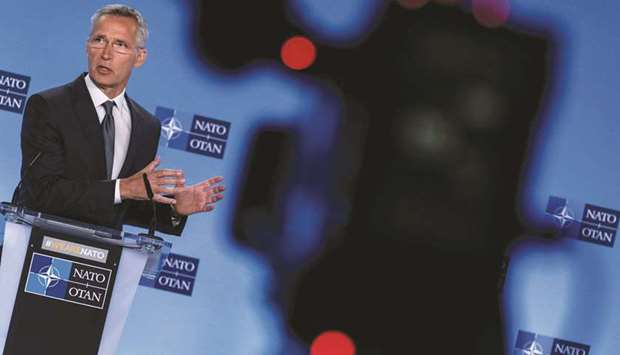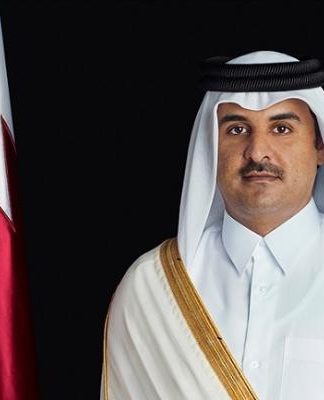The North Atlantic Treaty Organisation (Nato) said yesterday that it hopes to avoid a new arms race with Russia and not deploy nuclear weapons on European soil after Washington and Moscow ripped up a landmark Cold War-era missile pact.
The 1987 Intermediate-Range Nuclear Forces (INF) treaty, concluded by then-US president Ronald Reagan and Soviet leader Mikhail Gorbachev, limited the use of medium-range missiles, both conventional and nuclear.
Both sides had signalled their intention to pull out of the treaty for months, trading accusations of breaking the terms of the deal.
“Russia is solely responsible for the treaty’s demise,” US Secretary of State Mike Pompeo said in a prepared statement announcing Washington’s formal withdrawal at a regional forum in Bangkok, minutes after Russia pronounced the agreement void.
Russia’s deputy foreign minister Sergei Ryabkov has called on the US and other Nato members to implement a moratorium on deploying intermediate-range nuclear missiles.
Nato chief Jens Stoltenberg put the blame squarely on Russia, dismissing the suggestion of a moratorium as not credible while saying that the 29-country transatlantic alliance did not want to see a renewed battle for military supremacy.
“We will not mirror what Russia does,” Stoltenberg told a press conference in Brussels.
“We don’t want a new arms race. And we have no intention to deploy new land-based nuclear missiles in Europe,” he noted.
Ryabkov questioned those pledges, saying that “such assurances cannot be taken for granted”.
It was clear that the treaty’s termination had sparked security fears in Europe.
“Europe must not become the scene of a new arms race,” Austrian Foreign Minister Alexander Schallenberg said.
Under the deal, missiles with ranges of 500 to 5,500km (310 to 3,420 miles) were eliminated.
That paved the way for the mothballing of Russian SS-20 missiles and American Pershing missiles deployed in Europe.
For years, Washington has accused Russia of developing a new type of missile, the 9M729, which it says violates the treaty – claims that the Nato has backed up.
The missile has a range of about 1,500km, according to the Nato, though Moscow says it can only travel 480km.
“Russia failed to return to full and verified compliance through the destruction of its noncompliant missile system,” Pompeo said, referring to the 9M729 ground-launched cruise missile.
The Nato backed Washington, saying that it would “respond in a measured and responsible way to the significant risks posed by the Russian 9M729 missile to Allied security”.
Stoltenberg said the 9M729 was nuclear-capable, mobile and difficult to attack, able to hit European cities with only minutes of warning time.
The White House launched a six-month withdrawal procedure for leaving the treaty in February.
Soon after, Moscow began its move to pull out, and last month Russian President Vladimir Putin formally suspended its participation.
The INF deal was seen as one of two key arms deals between Russia and the US – the other being the New START treaty, which keeps the nuclear arsenals of both countries well below their Cold War peak.
That deal expires in 2021 and there appears to be little political will from Moscow or Washington to renew it, experts say.
China has already rebuffed calls from the US to join the New START treaty in the future.
The demise of the INF has sparked fears of a new era of weapons development between the heavyweights.
Last year, Putin announced plans to develop new weapons, including a medium-range land-based missile and a land-based version of the Kalibr missiles that have already successfully been used by the navy and tested in Syria.
The US and Russia own more than 905 of global nuclear stockpiles, according to the Council on Foreign Relations.
“The end of the treaty could spark a new nuclear arms race,” it said.
- News
- News of Welcome Qatar Company
- Political News
- Qatar Football
- Qatar News
- Social News
- Sport News
- Technology News
- World News
No new ‘arms race’, says Nato as INF treaty ends





























